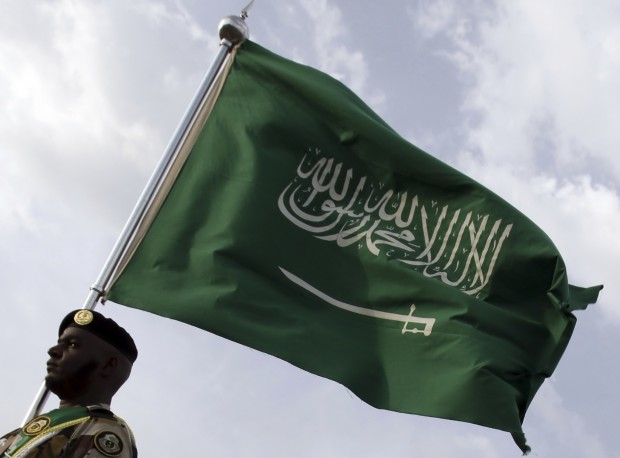
A member of the Saudi security force takes part in a military parade in preparation for the annual haj pilgrimage in Mecca October 20, 2012. On October 25, the day of Arafat, millions of Muslim pilgrims will stand in prayer on the mount of Arafat near Mecca at the peak of the annual pilgrimage. The security forces are tasked to keep guard during the pilgrimage. REUTERS/Amr Abdallah Dalsh (SAUDI ARABIA – Tags: RELIGION MILITARY)
King Abdullah bin Abdulaziz has presented to the Saudis the largest budget in the history of their country. Some would say this is natural, and to be expected, given the rise in oil prices, and this is true in some respects and not true in others. Specifically in our region, current affairs can be considered from multiple viewpoints, for example those looking from a political slant see everything from a political perspective, and here lies the crux of the matter.
I, for example, do not view the Saudi budget from an economic angle, but rather from a political one. The historic Saudi budget put forward by the Custodian of the Two Holy Mosques is not only an indication of Saudi Arabia’s oil capacity, but is also an indication of Saudi Arabia’s political wisdom and discipline for the benefit of the country and the people, especially amidst the critical moments being experienced by many countries in the region. It is true that oil prices rise and fall, and of course oil is a gift from God which we are very grateful for, but what I intend to do here is to compare, for example, between Saudi Arabia and Iran, which has the second largest natural gas reserves in the world and the third largest oil reserves. Let’s compare the historic Saudi budget to the economic situation in Iran, where the Iranian Riyal last year collapsed and destabilized the Iranian regime as a whole.
Saudi Arabia is rich in oil and so is Iran, and Iraq likewise in addition to its rivers and agricultural land, but there is a big difference, and this is wise policies. In the Saudi case there is a ruling system that you can say needs a lot of reform in its regulations, laws, education and other areas, but you cannot say that Saudi Arabia is a predatory country that embarks on misadventures, exposes its people to uncalculated risks, or tries to assume a role it does not have. My conviction and belief is that Saudi Arabia’s status does not stem purely from its oil, but also from being the birthplace of Islam and the land of the Two Holy Mosques. It is a country that is deep in the heart of Muslims everywhere, and thus it has tremendous influence and inestimable value all across the world. The historic Saudi budget tells us that when the ruling system is rational and wise, and takes into account the interests of the people, then the state is able to benefit from the gifts God has bestowed upon it. However, reckless, absurd and aggressive policies, such as those of Iran, will only lead to the downfall of a country, any country, and this is what is happening to Iran today as the world stands almost entirely against it, and against its policies. If political Iran was a share on the stock exchange, there would be no one willing to buy it.
In the case of Iraq, of course, it does not matter if there are sources of income stemming from oil or natural resources as long as the ruling system continues to exclude others and classify citizens according to their sect or their subjugation to the ruling party. A policy of exclusion and misadventure does not build a homeland and does not bring about stability. This is what we must watch closely for with regards to the ongoing conflicts in the Arab Spring states. Saudi Arabia has many internal requirements for reform and development; there is the need for continued investment in the Saudi citizen, male or female, especially in the field of education, and the need to continue the King Abdullah Scholarship Program for example. Nevertheless, the historic Saudi budget, when compared with some countries in the region, specifically Iran, not only demonstrates the country’s economic weight but also the the magnitude of wisdom and rationality prevalent in the Saudi leadership, especially amidst the stormy political waves of the region.
